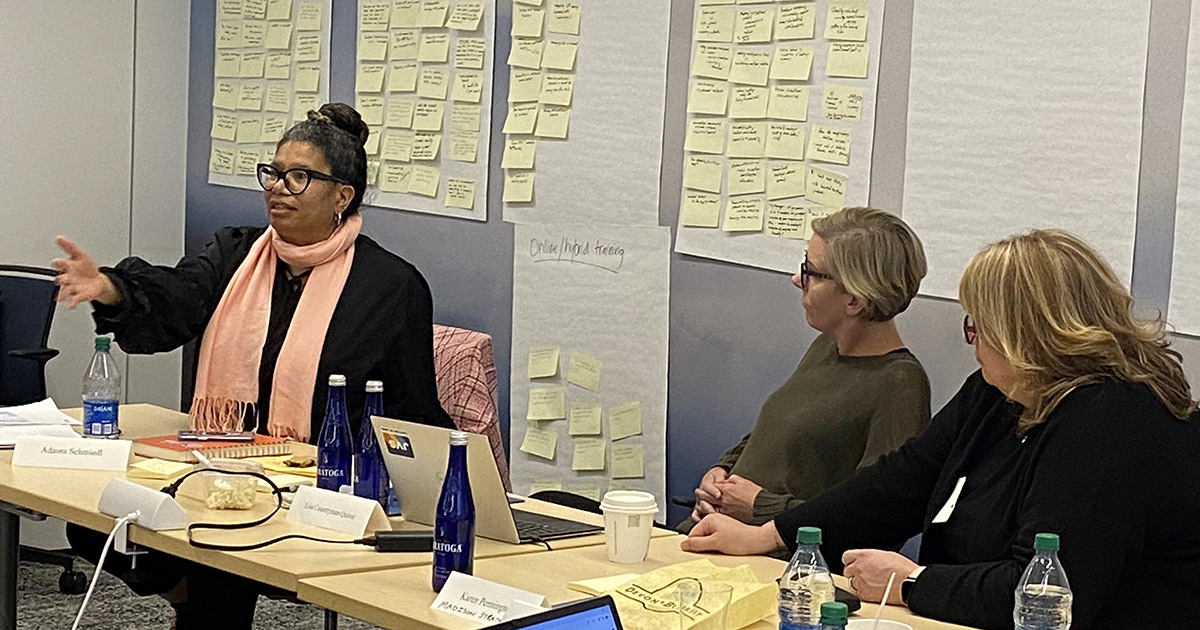Economic Mobility Lab

Overview
Millions of Americans do not have the skills, networks, or access to training needed to navigate a labor market that feels stacked against them and, as a result, are struggling to make ends meet. This is despite the fact that wages have grown over the past few years, especially in states that have increased their minimum wage. Workers are also constrained by historical, systemic inequalities and the racism and gender bias that powerfully shape labor force opportunities, experiences, and outcomes. Sectoral training has emerged as a strategy for assisting individuals who are under- or unemployed to gain the necessary skills required for jobs with opportunities for economic mobility. However, there is enormous variety in the content and quality of services sectoral training providers offer.
Sectoral skills training programs offer a promising strategy for equipping individuals with the expertise necessary to secure high-quality employment opportunities that provide room for professional development and career advancement. Offered by workforce development nonprofit organizations, these programs train underemployed and unemployed individuals for employment, offering services ranging from internship placement to skills workshops and certificate training courses. Organizations also tailor their programs to different demographics based on need; while some might serve young adults, others focus on local populations or historically marginalized communities. However, while sectoral training providers aim to train participants for work in high-growth industries, like manufacturing, healthcare, and technology, the rate at which individuals complete training, are hired, remain in gainful employment, and advance in their careers fluctuates greatly across programs. And many of these nonprofit organizations grapple with operational challenges that impede the delivery of their services.
To address these problems, MDRC established the Economic Mobility Lab to provide workforce training organizations with a collaborative and supportive environment to examine the current state of their training services, make program improvements, test new approaches, and scale operations to increase their programmatic capacity. The Economic Mobility Lab employs a technical assistance strategy grounded in human-centered design to promote equitable outcomes and improve the quality of services.
Additional Project Details
MDRC uses program data and the perspectives of program participants and staff to build a deep understanding of the factors that may be limiting each provider’s ability to serve participants better. Applying prior evidence from the field, MDRC employs data-driven, human-centered methods to codesign implementation-ready interventions tailored to the provider. MDRC then supports testing the interventions to assess progress made for staff and participants. Finally, MDRC staff work with each provider on a sustainability plan to continue learning and adapting after the project ends.
Working with providers, the Economic Mobility Lab seeks to reimagine what sectoral services can become in response to the ever-changing needs of people and local economies. By tackling common problems faced by workforce training providers, MDRC plans to identify evidence-based practices that can be useful for providers, intermediaries, funders, and policymakers across the country.
In 2023, an original cohort of four nonprofits was selected to participate in the Economic Mobility Lab: A. Philip Randolph Institute, JVS San Francisco, Madison Strategies Group, and Towards Employment. MDRC is working with them through 2025 to identify areas of operational challenge, design testable solutions, implement practical prototypes, and ensure sustainable maintenance of improved outcomes. As of early 2024, Brooklyn Workforce Innovations and Maryland New Directions have joined the initiative. They are part of a second cohort of organizations who will join the project in 2024 and 2025.
Featured Work
An Approach to Achieving Equitable Labor-Market Outcomes and Upward Mobility








